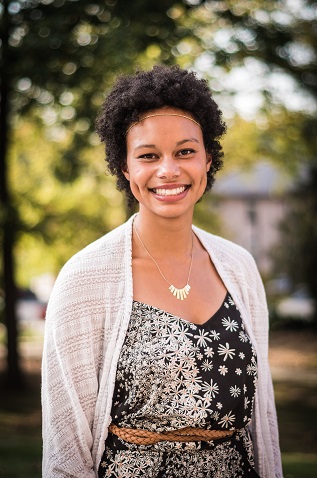The theme for this year’s Humanities Symposium is “Home,” and here at the Center for Public Humanities, we have been critically thinking about what home means, both for communities and individuals. Throughout that week (February 19-26), numerous people shared about this topic from many perspectives, and now Humanities Fellow Elisabeth Ivey will share her own reflection on home.
As a child, I had a very clear definition of hospitality: it meant asking guests what they’d like to drink or clearing their dishes away at the end of the meal. To be hospitable was to scurry around the house before the guests arrived, making sure the pillows on the couch sat upright and the carpets were clear of clutter.
Or the word might have brought to mind hotels, and an entire industry based on maintaining people’s satisfaction. In my paradigm of hospitality, I could think only of doing.
It wasn’t until recently that I considered hospitality as a state of being. While working for an organization during my time abroad in Thailand, I had the opportunity to sit in on a team lunch where we discussed our definitions of subject.
And one woman shared that when welcoming others into her home, she didn’t get them anything to drink; she showed them where the cups were so they could get it themselves. Through her perspective, to be hospitable – to make someone feel at home – was less an action and more a posture of treating people as comfortably as if they lived there. Less doing; more being.
With preparations for the Humanities Symposium, home has been a constant subject on my mind for about a year. Home, as the ambiguous and often emotional concept, doesn’t exist merely as the immediate walls that provide shelter but as the land that sprawls beneath us, the people that surround us, the language that runs through us.
When people say they feel at home, they presumably mean they feel comfortable. Home means feeling confident in taking up space.
Yet, as we’ve delved into home through the lenses of the Housing Act and immigration, it’s been clear that home has not provided comfort to all. Within these realms, a common theme has emerged of people searching for home yet meeting hostility, not hospitality.
Redlining and hateful rhetoric became roadblocks in history that barred people from a sense of home. And while we write and encourage others to write “I Am From” poems in our Poetry in Place workshops, I’ve been reminded that too many come from places of pain and sorrow, that home does not equal happy for everyone.
So what does hospitality look like at this scale? In the midst of the symposium, I’m still grappling with that question and wondering, how can hospitality address these problems – how can we carve out space for others to fill and truly feel like they belong?
We ponder that question often here at the Center for Public Humanities. After all, “public” denotes some kind of extension beyond ourselves, past the realm of academia and into the community. I’m still honing my definition of hospitality, but I’m finding a connection between what I thought it was and what it has been for others.
I suspect true hospitality exists in the intersection between doing – using whatever gifts and abilities we have to make space for others – and being – which entails knowing when it’s time to step back and witness others use their gifts and abilities as well.

Elisabeth Ivey is a senior at Messiah College, where she studies English and sociology & anthropology. Both fields reflect her desire to learn more about the diversity of humanity and God’s thread of redemption that runs through it. She believes that stories wield the power to change individuals and society, so they should be told often and told well. During her time at the Center for Public Humanities, she hopes to have opportunities to engage with people’s lives in story and to see the way that the humanities can address divisions and strengthen bonds that already exist.
Above image by barbara w, used with permission under a Creative Commons License.

One thought on “Home as Hospitality”